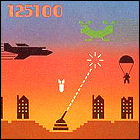 A latecomer to the glut of companies trying to provide software for the Atari 2600 video game system, US Games is closed down by its parent companies, Quaker Oats and Fisher-Price. Barely a year old, and with only 14 titles released, US Games is dubbed “an experiment” – but apparently not an experiment capable of surviving in the rapidly contracting video game market.
A latecomer to the glut of companies trying to provide software for the Atari 2600 video game system, US Games is closed down by its parent companies, Quaker Oats and Fisher-Price. Barely a year old, and with only 14 titles released, US Games is dubbed “an experiment” – but apparently not an experiment capable of surviving in the rapidly contracting video game market.

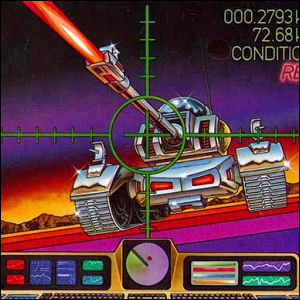 Activision releases the
Activision releases the 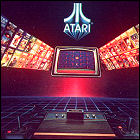 With the video game industry crash taking its toll, and Atari’s financial status in free-fall, CEO Ray Kassar resigns from the company shortly after a disastrous earnings report showing two straight quarters of multi-million dollar losses – the first Warner Communications suffered since the year before it bought Atari and installed Kassar as CEO. Kassar has also drawn fire for accusations that he sold thousands of shares of his Warner stock minutes prior to the fateful December 1982 announcement that heralded the beginning of the industry’s downturn. Kassar is replaced by former Philip Morris marketing VP James Morgan, who has no prior experience in the consumer electronics field; his previous experience has been in tobacco marketing.
With the video game industry crash taking its toll, and Atari’s financial status in free-fall, CEO Ray Kassar resigns from the company shortly after a disastrous earnings report showing two straight quarters of multi-million dollar losses – the first Warner Communications suffered since the year before it bought Atari and installed Kassar as CEO. Kassar has also drawn fire for accusations that he sold thousands of shares of his Warner stock minutes prior to the fateful December 1982 announcement that heralded the beginning of the industry’s downturn. Kassar is replaced by former Philip Morris marketing VP James Morgan, who has no prior experience in the consumer electronics field; his previous experience has been in tobacco marketing.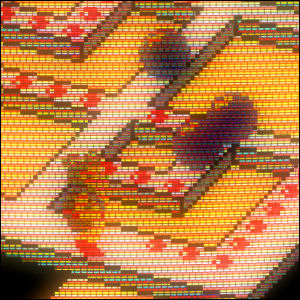 Atari releases
Atari releases 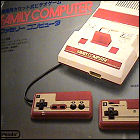 In Japan, Nintendo launches the Famicom (Family Computer) home video game system, with a few games available at the product’s launch, all of which are ports of popular Nintendo arcade games. Within months, major technical problems are reported and faulty consoles are returned, and Nintendo discovers that a design flaw is responsible. All Famicom units are recalled and refurbished at the company’s expense. In two years, the console will be launched in North America as the Nintendo Entertainment System, almost single-handedly reviving the video game industry around the world.
In Japan, Nintendo launches the Famicom (Family Computer) home video game system, with a few games available at the product’s launch, all of which are ports of popular Nintendo arcade games. Within months, major technical problems are reported and faulty consoles are returned, and Nintendo discovers that a design flaw is responsible. All Famicom units are recalled and refurbished at the company’s expense. In two years, the console will be launched in North America as the Nintendo Entertainment System, almost single-handedly reviving the video game industry around the world.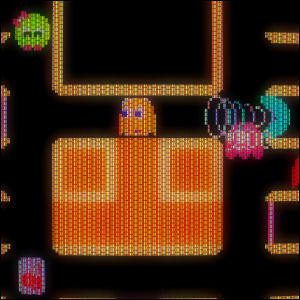
 After dismal second-quarter earnings reports lead to weeks of massive sell-offs of Warner Communications and Texas Instruments stock (among many other companies tied into the field of computer and video games), investment firm Prudential-Bache Securities – usually a staunch supporter of tech stocks – kicks the industry crash into high gear with a simple warning: do not buy. Stock prices for video game and computer companies tumble precipitously for the remainder of 1983, driving some of the industry’s longest-lived players out of the business (or out of business altogether). Even relatively stable stocks such as Apple and Coleco take a major hit; computer manufacturers and arcade-only game makers who have made it through the first half of 1983 unscathed find their stock valued at half of what it was worth just weeks before. In many respects this marks the end of the home-grown American video game industry: the next wave of successful products will arrive from Japan, and American software houses will rely on those machines to run their products.
After dismal second-quarter earnings reports lead to weeks of massive sell-offs of Warner Communications and Texas Instruments stock (among many other companies tied into the field of computer and video games), investment firm Prudential-Bache Securities – usually a staunch supporter of tech stocks – kicks the industry crash into high gear with a simple warning: do not buy. Stock prices for video game and computer companies tumble precipitously for the remainder of 1983, driving some of the industry’s longest-lived players out of the business (or out of business altogether). Even relatively stable stocks such as Apple and Coleco take a major hit; computer manufacturers and arcade-only game makers who have made it through the first half of 1983 unscathed find their stock valued at half of what it was worth just weeks before. In many respects this marks the end of the home-grown American video game industry: the next wave of successful products will arrive from Japan, and American software houses will rely on those machines to run their products.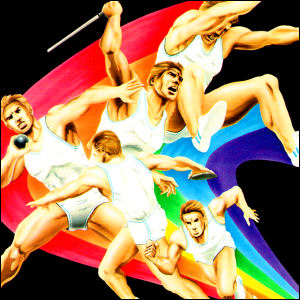 Activision releases
Activision releases 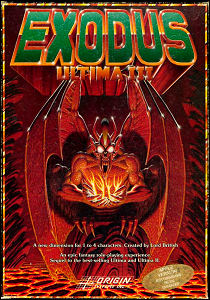 Origin Systems releases the
Origin Systems releases the 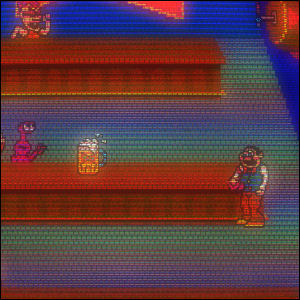
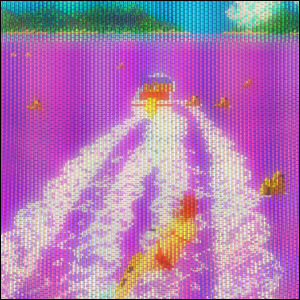 IREM releases
IREM releases  Software company Imagic, which started out marketing games for the Atari VCS before branching out into the Intellivision, Colecovision, home computer and even Odyssey² markets, nixes plans to sell public stock in the company. Shortly afterward, 40 of Imagic’s 170 employees are laid off, with every indiciation that more employees will follow as the company tries to stay afloat. Potential investors are told that Imagic’s initial public offering has been delayed until early 1984, but stock in the company is never sold.
Software company Imagic, which started out marketing games for the Atari VCS before branching out into the Intellivision, Colecovision, home computer and even Odyssey² markets, nixes plans to sell public stock in the company. Shortly afterward, 40 of Imagic’s 170 employees are laid off, with every indiciation that more employees will follow as the company tries to stay afloat. Potential investors are told that Imagic’s initial public offering has been delayed until early 1984, but stock in the company is never sold. In what is perhaps the most tangible event of the entire video game industry crash in 1983, Atari dumps 14 truckloads of unsold game cartridges and other parts in the Alamagordo, New Mexico city dump, with security guards standing by to keep curious onlookers from grabbing any “souvenirs” before concrete is poured over them. The unsold merchandise is stock left over from the closure of Atari’s cartridge assembly plant in El Paso, Texas. Second-quarter earnings report reveal that Atari has lost over $300,000,000 since the beginning of 1983.
In what is perhaps the most tangible event of the entire video game industry crash in 1983, Atari dumps 14 truckloads of unsold game cartridges and other parts in the Alamagordo, New Mexico city dump, with security guards standing by to keep curious onlookers from grabbing any “souvenirs” before concrete is poured over them. The unsold merchandise is stock left over from the closure of Atari’s cartridge assembly plant in El Paso, Texas. Second-quarter earnings report reveal that Atari has lost over $300,000,000 since the beginning of 1983.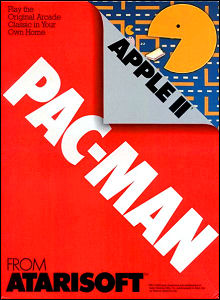 Atari, under its Atarisoft imprint, releases the
Atari, under its Atarisoft imprint, releases the 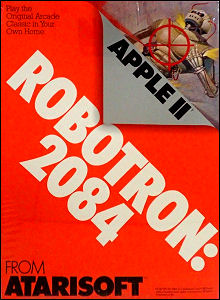 Atari, under its Atarisoft imprint, releases the
Atari, under its Atarisoft imprint, releases the 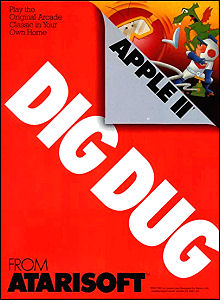 Atari, under its Atarisoft imprint, releases the
Atari, under its Atarisoft imprint, releases the 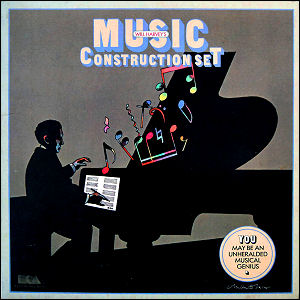 Electronic Arts releases Will Harvey’s Music Construction Set for the Apple II (versions will follow for other systems, such as the Atari home computers and Commodore 64, but the Apple II version is the first released, with users advised that the software works best with the Mockingboard music and audio peripheral).
Electronic Arts releases Will Harvey’s Music Construction Set for the Apple II (versions will follow for other systems, such as the Atari home computers and Commodore 64, but the Apple II version is the first released, with users advised that the software works best with the Mockingboard music and audio peripheral). 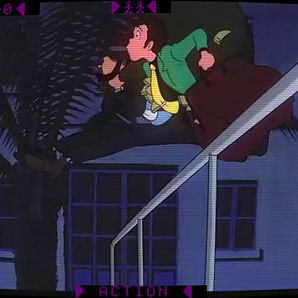 Stern Electronics releases
Stern Electronics releases 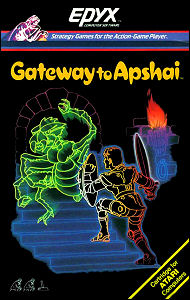 The third and final game in Epyx’s “Apshai trilogy” is released for various home computer platforms.
The third and final game in Epyx’s “Apshai trilogy” is released for various home computer platforms. 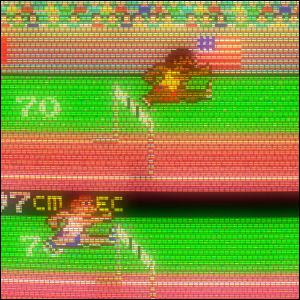 Konami introduces the arcade game
Konami introduces the arcade game  Having claimed from the start that a computer add-on for its Colecovision console would be forthcoming, Coleco delivers on the promise with the first shipments of Adam home computer systems. Compatible with Colecovision games, Adam proves to be an immediate setback to the company due to serious technical problems and product failures, leading to a startling fourth-quarter shortfall at the end of 1983.
Having claimed from the start that a computer add-on for its Colecovision console would be forthcoming, Coleco delivers on the promise with the first shipments of Adam home computer systems. Compatible with Colecovision games, Adam proves to be an immediate setback to the company due to serious technical problems and product failures, leading to a startling fourth-quarter shortfall at the end of 1983.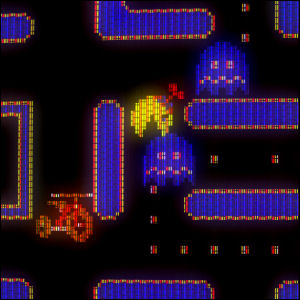
 Activision releases the
Activision releases the 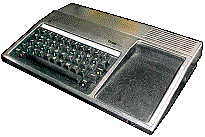 After a six-month loss totaling over $200,000,000, Texas Instruments puts its computer division out of its misery immediately, ending all manufacturing and support for the TI 99/4a home computer. Prices on the remaining stock of TI computers drop well below the $100 mark, and the company lays off thousands of employees; third-party software and peripheral vendors such as Milton Bradley take a hit by the end of the year as a result. Company executives describe TI’s losses in 1983 so far as the worst that the company has ever suffered.
After a six-month loss totaling over $200,000,000, Texas Instruments puts its computer division out of its misery immediately, ending all manufacturing and support for the TI 99/4a home computer. Prices on the remaining stock of TI computers drop well below the $100 mark, and the company lays off thousands of employees; third-party software and peripheral vendors such as Milton Bradley take a hit by the end of the year as a result. Company executives describe TI’s losses in 1983 so far as the worst that the company has ever suffered.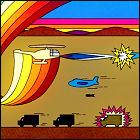 The first video game company to produce only software without a hardware platform of its own, Activision is heavily dependent on the Atari 2600 – and Atari’s falling fortunes bring Activision down with it. After third quarter losses of $4,000,000, a quarter of Activision’s workforce is laid off; Activision CEO Jim Levy cautiously predicts better results in 1984.
The first video game company to produce only software without a hardware platform of its own, Activision is heavily dependent on the Atari 2600 – and Atari’s falling fortunes bring Activision down with it. After third quarter losses of $4,000,000, a quarter of Activision’s workforce is laid off; Activision CEO Jim Levy cautiously predicts better results in 1984.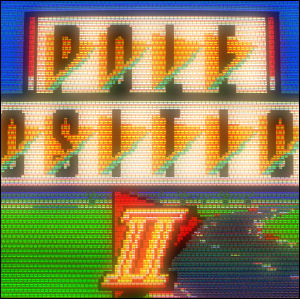 Atari’s arcade game
Atari’s arcade game 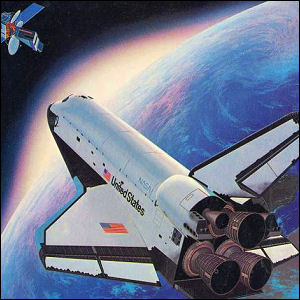 Activision releases
Activision releases 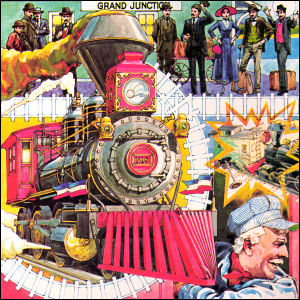 Mattel Electronics releases the
Mattel Electronics releases the 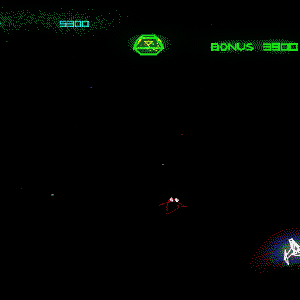 Atari releases
Atari releases